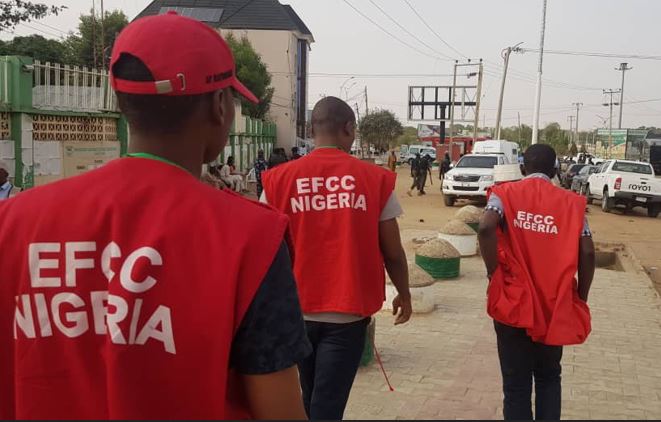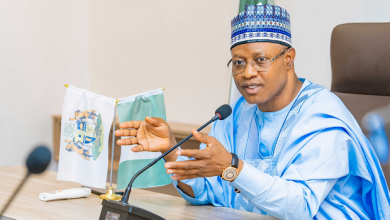Public Concerns Mount Over EFCC’s Uneven Response To Naira Abuse

A recent video showing an extravagant display of cash at a high-profile event has captured the attention of Nigerians for several reasons. The spectacle, with guests throwing naira notes like confetti and carpeting the floor with cash, sparked public curiosity and criticism. For some, it brought to mind the recent case of cross-dresser and social media influencer, Idris Okuneye, popularly known as Bobrisky, whose similar actions led to his swift arrest and imprisonment by the Economic and Financial Crimes Commission (EFCC). For others, it raises a troubling question: is there a double standard in how laws are enforced, one for the wealthy elite and another for ordinary Nigerians?
Bobrisky’s encounter with the EFCC highlighted the strictness of Nigeria’s currency abuse laws. The influencer, accused of “spraying” naira notes at an event, was quickly arrested and sentenced to six months in prison. His arrest followed publicized footage of him tossing naira bills into the air like a casino dealer. Despite the popularity of the “naira rain” tradition at Nigerian celebrations, the law classifies this act as currency abuse and criminalizes it. Bobrisky’s case, widely publicized, seemed to demonstrate the EFCC’s efficiency—until, just weeks later, another video surfaced showing similar acts at a different high-profile event.
The new video, reportedly taken at a major social gathering in northern Nigeria, featured guests throwing large amounts of cash with similar disregard for currency laws. Although speculation tied the video to the October 25 wedding of former governor Danjuma Goje’s daughter in Abuja, Goje’s spokesperson quickly dismissed this as a baseless rumor meant to smear the family. Regardless of its origin, the video clearly showed influential attendees treating naira notes as disposable items. Despite the similarity to Bobrisky’s case, the EFCC has yet to take any action, fueling public concerns over the agency’s selective enforcement of laws.
The EFCC’s silence on this recent incident has sparked criticism, especially as its mandate emphasizes curbing corruption and holding powerful offenders accountable. Many Nigerians feel the EFCC displays “selective agility” by acting swiftly against high-profile, accessible figures like Bobrisky while hesitating to confront influential elites. This has intensified concerns about inequality before the law in Nigeria, with critics pointing out that while prisons are filled with everyday offenders, wealthy individuals often seem immune from the same legal scrutiny.
EFCC Chairman Ola Olukoyede, who recently vowed to prosecute former Kogi State governor Yahaya Bello, now faces a reputation test. His agency’s inaction over the latest naira rain video raises questions about the EFCC’s integrity and commitment to justice. Nigerians are calling for the agency to enforce currency laws fairly and transparently, regardless of an individual’s social standing. They argue that until those responsible for the most recent cash display are held accountable, the EFCC has little moral ground to pursue similar cases against others.
The controversy has brought broader issues of fairness and accountability to the fore, with many Nigerians demanding clarity and action. The EFCC now faces pressure to demonstrate that it serves all Nigerians equally—whether by pursuing the individuals behind the recent naira rain incident or, if not, issuing a public apology to Bobrisky.



